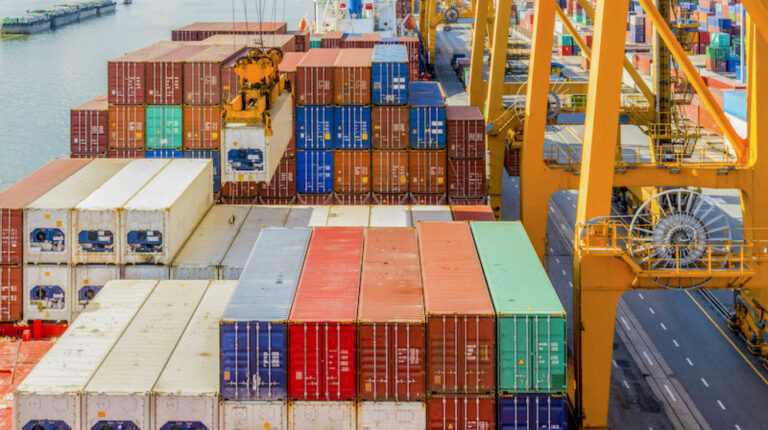Every groundbreaking movement starts with a simple question: “What if things could be better?”
For years, Nigerian exporters asked this question but never found the answer.
That was until Nduka Udeh, an export consultant who has spent more than a decade guiding African entrepreneurs, decided to stop listening to the same complaints and start rewriting the story.
He had worked with over 5,000 businesses. He had seen first-hand the brilliance of African products—from cassava flour and shea butter to handmade jewelry and contemporary fashion. But he had also watched those products rot in local markets while their owners drowned in endless frustration:
-
Customs seizures.
-
Shipping costs that erased profits.
-
Delivery delays that killed trust with buyers.
-
Endless documentation nightmares.
“I could almost recite their pain before they spoke,” Nduka recalls. That’s when the idea struck him: what if African exporters had a reliable bridge into the U.S.?
And in 2025, he built that bridge—by putting down $200,000 of his own money to establish a world-class warehouse in Delaware, USA.
More Than a Building, A Breakthrough
This facility, run under African Import Export Solutions (AfricanIES), isn’t just another storage house. It’s a launchpad for African products into the global market.
What it delivers is what exporters had only dreamed of for years:
-
90 days of storage for just $1.
-
Over 60% savings on shipping costs.
-
1–3 day delivery anywhere in the U.S.
-
Guaranteed customs clearance and full insurance.
-
A digital inventory system exporters can manage from home.
-
Return shipments back to Nigeria in just 3–5 days.
Most importantly—it brings peace of mind. No more “goods seized.” No more unpredictable costs. Just a transparent, dependable system designed by someone who has walked in exporters’ shoes.
Why Delaware? Why Now?
Delaware wasn’t chosen at random. It’s one of the few U.S. states with zero sales tax, and it sits strategically close to highly populated East Coast hubs—New York, New Jersey, Maryland, Washington D.C., Virginia, Pennsylvania.
This means two things:
-
For exporters → Faster delivery to thousands of African stores and households clustered in these states.
-
For Nigerian shoppers → Tax-free shopping from U.S. stores like Amazon, Walmart, or Shein, instantly saving up to 10% on purchases.
Add in low-cost group shipping, fast dispatch, and flexible naira payment options, and the warehouse isn’t just helping exporters—it’s also revolutionizing cross-border shopping for Nigerians worldwide.
The Impact in Action
Here’s how this facility is changing the game:
-
Bulk shipping, smarter storage – Send products once, store them cheaply, and fulfill orders on demand.
-
Cut shipping costs by more than half – Bulk ocean freight as low as $350/CBM and air freight from ₦11,500/kg.
-
Tax-free shopping for Nigerians abroad – Save instantly on every U.S. purchase.
-
Faster, insured delivery – From Delaware to customers in days, not months.
-
Market access – AfricanIES helps exporters secure FDA, NAFDAC, and customs approvals, opening doors to U.S. shelves.
It’s not just logistics. It’s access, trust, and a seat at the global table.
The Man Behind the Movement
Nduka Udeh isn’t new to this fight. He’s a certified export coach, a U.S.-trained compliance expert, and founder of AfricanIES—a company that has already guided over 10,000 African businesses through the maze of export documentation, training, and logistics.
“This warehouse was built for the dreamers, the manufacturers, the hustlers—every African entrepreneur determined to place their product on shelves across the U.S.,” he says.
His passion is clear: to transform Africa’s wealth potential into global influence.
Who Stands to Benefit?
-
Exporters tired of high shipping costs.
-
Nigerian shoppers looking for cheaper, tax-free access to U.S. goods.
-
Online sellers who want to compete with American delivery speeds.
-
Diaspora entrepreneurs running resell businesses.
-
Anyone seeking a stress-free, cost-effective way to move goods across borders.
A New Dawn for African Exports
With his $200,000 Delaware investment, Nduka hasn’t just built a warehouse—he’s built a movement. A bold declaration that African businesses can, and will, compete on a global scale.
From Lagos to Nairobi, from Accra to Aba, African products now have a doorway into New York, Texas, California, and beyond.
And that doorway is wide open.

